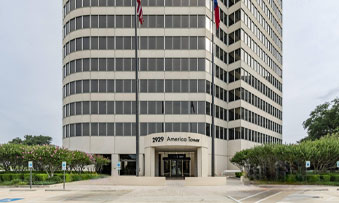Atlanta UPS Truck Accident Lawyer
The familiar sight of brown UPS trucks on Georgia’s roads is a daily occurrence; however, the sheer size and weight of these commercial vehicles, combined with the pressures of demanding delivery schedules, create inherent risks on our highways and neighborhood streets. When a collision occurs involving a large delivery truck like those operated by UPS, the consequences for injury in smaller passenger vehicles can be devastating and can often lead to life-altering injuries and complex legal challenges.
Georgia, a major transportation hub, sees a significant volume of commercial truck traffic, including countless UPS vehicles navigating busy interstates and local roads daily. Understanding the frequency of these incidents, the common causes behind them, the types of injuries often sustained, and the specific Georgia laws that govern these situations is crucial for anyone involved in such an accident.
If you or a loved one has been injured in an accident involving a UPS truck in Georgia, you are likely facing physical pain, emotional distress, and mounting financial burdens. Merritt & Merritt Law Firm stands ready to be your steadfast advocate, equipped with an understanding of Georgia trucking laws and the dedication to fight for the compensation you deserve. Call us today for your free consultation to evaluate your case at 404-975-1775.
UPS & Commercial Truck Accidents in Georgia
The presence of large commercial trucks, including the extensive UPS fleet, significantly impacts road safety in Georgia. Large trucks, generally defined as those with a Gross Vehicle Weight Rating (GVWR) over 10,000 pounds, encompass many of the vehicles used for package delivery at UPS.
Recent data from the Georgia Governor’s Office of Highway Safety reveals the stark reality of accidents caused by large trucks and the impact on the safety of others on the road. In 2021, Georgia experienced a tragic toll from large truck accidents: 244 people lost their lives in crashes involving at least one large truck, accounting for 14% of all traffic fatalities in the state that year. This represented a concerning 4% increase from the 234 fatalities recorded in 2020 and a staggering 59% increase over the past decade. Alongside these fatalities, 617 individuals suffered serious injuries in large truck-involved crashes in 2021. (Source). Preliminary federal data suggests these trends continued, with 263 fatalities and 3,232 injuries linked to large truck crashes in Georgia during 2022.
In 2021, a staggering 81% of those killed or seriously injured in large truck crashes were occupants of other vehicles (76%) or non-motorists like pedestrians and cyclists (5%). Only 16% were the truck operators themselves. This disparity underscores the immense danger posed to passenger cars, motorcycles, cyclists, and pedestrians when a collision with a large commercial vehicle occurs.
Why UPS Truck Accidents Happen: Common Causes
Accidents involving large delivery trucks like those operated by UPS rarely happen without a cause of some kind. While UPS implements safety protocols and training, the demands of the industry and the inherent challenges of operating large vehicles can contribute to collisions with others. Understanding these common causes is vital when determining liability after an accident.
- Driver Fatigue: This is a pervasive issue in the commercial trucking industry, including package delivery. UPS drivers often face long shifts and demanding schedules, especially during peak seasons when routes increase significantly. The pressure to meet tight delivery deadlines can lead drivers to push their limits, operate while drowsy, or even violate certain company rules. Fatigue is known to dramatically impair judgment, slow reaction times, and increase the risk of critical errors, often mirroring the dangers of driving under the influence.
- Distracted Driving: Delivery drivers often utilize multiple systems while operating their large trucks, including but not limited to using GPS for navigation, interacting with dispatch systems, managing delivery schedules on electronic devices, or using their personal phones. All of these things can cause distractions from the road.
- Speeding and Aggressive Driving: The pressure to complete routes quickly and meet delivery windows can incentivize speeding or other aggressive driving behaviors like unsafe lane changes or following too closely. Exceeding speed limits makes these large, heavy vehicles much harder to control and stop, significantly increasing the risk and potential severity of a crash. Data shows that following too closely and improper lane changes are leading contributing factors in multi-vehicle truck crashes.
- Other Contributing Factors: Large trucks usually have significant blind spots, making lane changes hazardous. Adverse weather conditions can also increase stopping distances and reduce visibility. Drivers navigating unfamiliar routes may make sudden stops or errors, which are harder for larger vehicles to do.
Often, accidents result from a combination of these factors listed above. Identifying the specific causes requires a thorough investigation, often involving analysis of driver logs, maintenance records, company policies, and accident reconstruction. When filing your claim, an experienced Atlanta UPS truck accident lawyer can help you gather all of the evidence you need to show the negligence of the UPS driver.
Common Injuries in UPS Truck Accidents
Large trucks that UPS utilizes inherently cause more severe accidents due to the larger size of the vehicle. The types of injuries sustained are frequently catastrophic and can have profound long-term consequences.
Common injuries resulting from UPS and other large truck accidents include:
- Traumatic Brain Injuries (TBI): Even without direct impact to the head, the violent forces of a truck crash can cause the brain to strike the inside of the skull. TBIs range from seemingly mild concussions to severe injuries causing permanent cognitive deficits, memory loss, personality changes, and loss of motor function.
- Spinal Cord Injuries: Damage to the spinal cord is one of the most devastating outcomes of a truck accident. Depending on the location and severity of the injury, victims can suffer partial or complete paralysis, loss of sensation, and loss of bodily functions.
- Back and Neck Injuries: Whiplash is common, but injuries can be far more severe, including herniated or ruptured discs, fractured vertebrae, and chronic pain. Because the back and neck are central to movement, these injuries can be debilitating, preventing victims from working, engaging in daily activities, and enjoying life without significant pain and limitation.
- Broken Bones and Fractures: Multiple fractures, complex fractures requiring surgery, and crush injuries are common, particularly to the limbs, ribs, and pelvis.
- Internal Injuries: The blunt force trauma can cause severe damage to internal organs like the spleen, liver, kidneys, bladder, or bowels, leading to internal bleeding. These injuries are often life-threatening if not diagnosed and treated immediately and can lead to long-term organ dysfunction or removal.
- Lacerations, Burns, and Scarring: Deep cuts from broken glass or crushed metal are frequent and can result in significant blood loss and permanent, disfiguring scars. While less common with standard package trucks, burns can occur if fuel tanks rupture or flammable materials are involved, leading to excruciating pain and extensive scarring.
The victims of crashes involving UPS trucks often face a long road to recovery involving surgeries, rehabilitation, chronic pain management, and psychological counseling for conditions like PTSD. The financial toll, including astronomical medical bills and lost income, can add immense stress during an already difficult time.
Georgia Laws Governing UPS Truck Accidents
Successfully pursuing a personal injury claim after a UPS truck accident in Georgia requires navigating a complex web of both federal and state laws and regulations specifically governing the trucking industry. These rules cover everything from driver qualifications and work hours to vehicle maintenance and insurance requirements. Understanding these laws is critical to establishing negligence and holding the responsible parties accountable. Merritt & Merritt Law Firm has a deep understanding of these regulations and how they apply to your case.
Specific Georgia Laws Affecting Your Claim
- Vicarious Liability: This crucial Georgia law states that an employer (like UPS) can be held legally responsible for the negligent actions of its employee (the driver) if the employee was acting within the scope of their employment at the time of the accident. If the driver was making deliveries, driving between stops, or performing other job duties, UPS is likely liable for the harm caused by the driver’s carelessness. Importantly, if the employee is driving a company-owned vehicle (like a UPS truck), Georgia law creates a presumption that they were acting within the scope of employment.
- Negligent Hiring, Training, or Retention: A company like UPS can be held directly liable if it failed to exercise “ordinary care” in hiring, training, or supervising its drivers. If the company hired a driver with a poor safety record, failed to provide adequate training, or kept a driver employed despite knowing about incompetence or safety violations, and that negligence contributed to the accident, the company itself can be found at fault.
- Direct Action Statutes: Georgia has unique laws that allow an injured party in a truck accident case to sue the trucking company’s insurance carrier directly, naming them as a defendant in the lawsuit alongside the driver and the trucking company..
- Comparative Negligence: Georgia law allows you to recover damages even if you were partially at fault for the accident, as long as your percentage of fault is determined to be less than 50%. However, your total compensation will be reduced by your percentage of fault. If you are found to be 50% or more responsible for the accident, you are barred from recovering any
- Statute of Limitations: In Georgia, you generally have only two years from the date of the accident to file a personal injury lawsuit. If you miss this strict deadline, you will permanently lose your right to seek compensation through the courts, regardless of the severity of your injuries or the clarity of the other party’s fault.
Navigating these laws and regulations can often be stressful and requires a level of legal expertise. An Atlanta UPS truck accident lawyer can make all the difference in your liability case, and can ensure you receive the maximum amount of compensation.
Call Today to Speak with an Atlanta UPS Truck Accident Lawyer
Facing the aftermath of a collision with a UPS truck can be overwhelming. You’re likely dealing with injuries, medical treatments, and financial worries, all while potentially facing a large corporation and its team of insurers and lawyers who prioritize minimizing their payout. In this situation, having experienced, dedicated legal representation is not just helpful – it’s essential. Merritt & Merritt Law Firm is committed to leveling the playing field for victims of truck accidents throughout Georgia.
Recovering from an accident is stressful enough; don’t face the legal aftermath of a UPS truck accident alone. Let Merritt & Merritt Law Firm fight for the justice and compensation you deserve. Contact us 24/7 at 404-975-1775 or visit our website to schedule your free case review.






